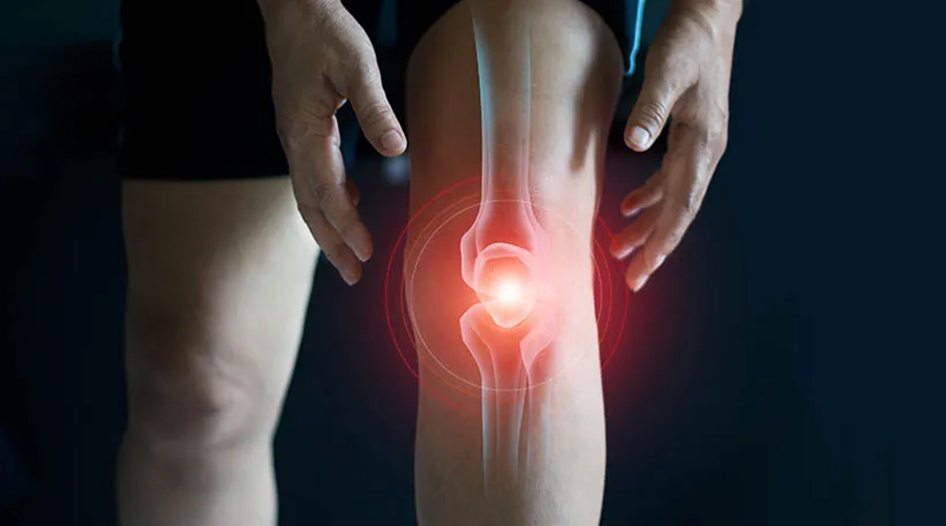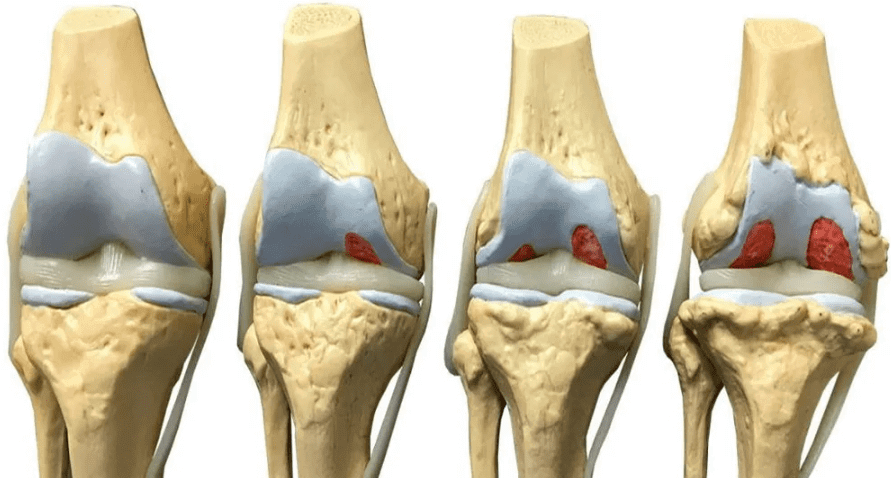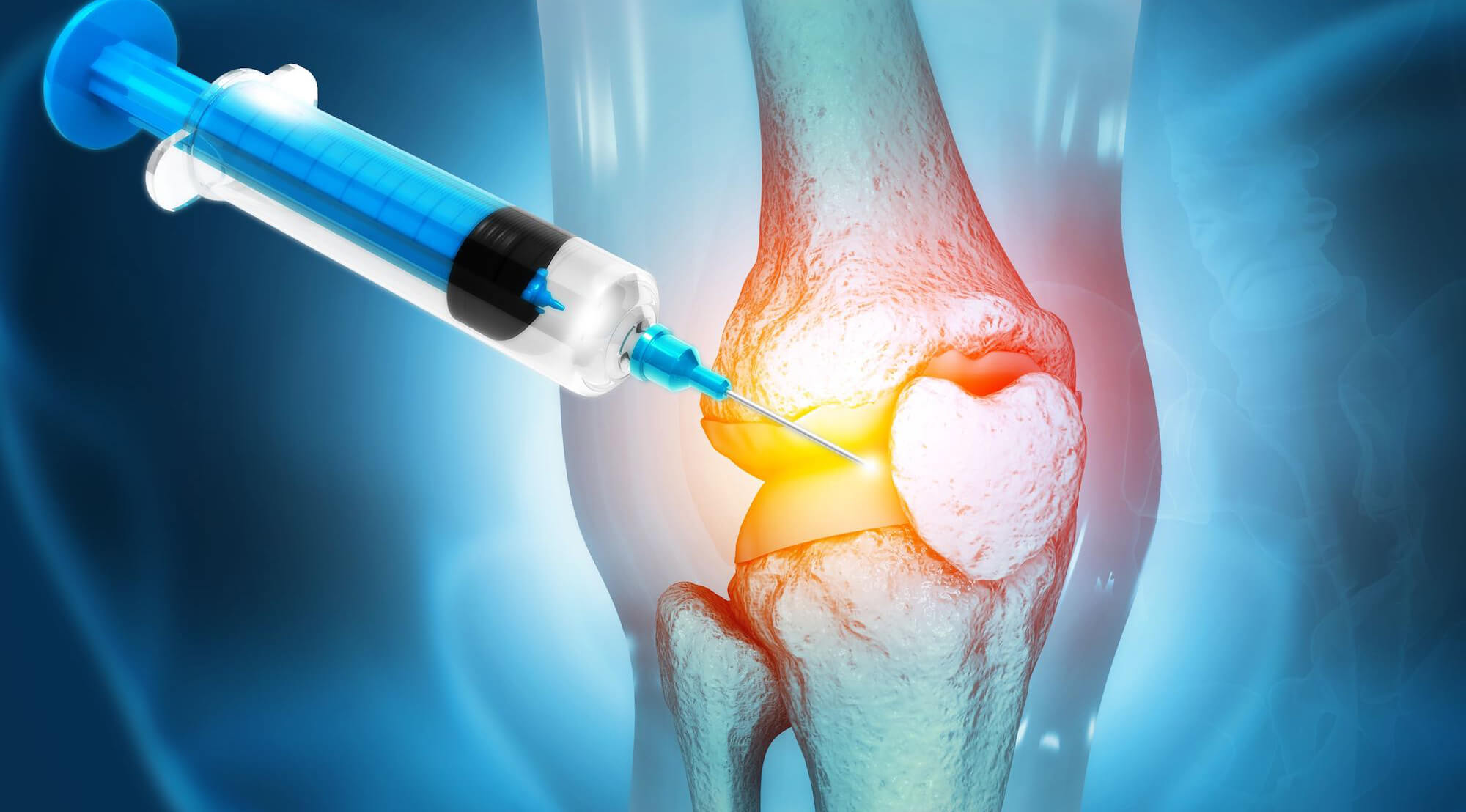Calls for Ukraine
Calls for Europe
Calls for USA

Osteoarthritis is a degenerative joint disease and one of the most common disorders of the musculoskeletal system, affecting 10-15% of the global population. Another name for the condition is arthrosis (osteoarthrosis). What is arthrosis? This is a disease that is directly related to age. Pathological processes characteristic of osteoarthrosis often first appear at the age of 40-50 years, and by the age of 80, they are present in most individuals.
What is an osteoarthritis? Osteoarthritis (is also known as osteoarthritis) is a chronic joint disease of degenerative-dystrophic nature. This pathology is characterized by thinning and damage to the articular cartilage, as well as hypertrophy of bone tissues, resulting in such osteoarthritis symptoms as pain, discomfort, and restricted joint mobility. The most commonly diagnosed types of osteoarthritis include arthritis of the knee and hip joints, followed by arthritis of the shoulder, ankle joints, and fingers. However, degenerative arthritis can affect any joint of the human body. As the disease progresses, it may lead to limitation of mobility and then complete loss of joint function. A single joint may be affected, or generalized osteoarthrosis may be diagnosed, involving multiple joints simultaneously.
MedTour will help you choose a suitable clinic that employs the most effective methods for osteoarthritis treatment.

To effectively treat the disease, it is essential to clearly understand what arthritis is, causes of osteoarthritis, and the possible types of osteoarthritis. Various classifications are used for diagnosis. Arthrosis can be categorized as:
Depending on the area affected, there are different types of osteoarthritis. The most common include:
The condition may be localized, affecting only one area, or it can develop as generalized osteoarthritis, involving three or more joints in the pathological process.
Doctors may diagnose both arthrosis and arthritis. Often, osteoarthritis and osteoarthrosis are used synonymously, though in some cases, they have slightly different meanings. Both arthrosis and arthritis are associated with degenerative joint disease of the musculoskeletal system:
However, most often inflammatory and degenerative processes occur simultaneously, so both terms can be applied to many conditions.
In many cases, both inflammatory and degenerative processes occur simultaneously, which is why both terms (arthrosis and arthritis) may apply to a variety of conditions.
The main signs of osteoarthritis include:
As the disease progresses, the signs of osteoarthritis intensify. Typically, joint mobility decreases, which is associated with tissue deformation, severe cartilage thinning, and increased friction between bone surfaces. In the case of knee arthrosis, lameness develops, walking becomes difficult, and over time, even slight leg movements may become challenging.
MedTour will help you find a medical facility where therapy will be selected to slow down the destructive processes in your joints, relieve pain, and improve your quality of life.
The main causes of osteoarthritis include:

There are four stages or degrees of the disease:
The speed of osteoarthritis progression can vary significantly. The disease can develop slowly over decades or progress rapidly, leading to severe changes within a few years that require mandatory surgical treatment.
Periods of exacerbation and improvement may occur, but as the disease advances to later stages, it increasingly limits mobility and reduces the quality of life.
During exacerbations, an active inflammatory process typically occurs, causing severe pain. Osteoarthritis treatment often includes pain-relieving medications, such as: analgesics, non-steroidal anti-inflammatory drugs. For severe pain, doctors may give injections directly into the joint. For example, in cases of painful deforming spondylosis, spinal blockade with an anti-inflammatory anesthetic may be performed. Special ointments and creams that have an analgesic effect can also be used.
While medication can relieve pain, it does not constitute comprehensive treatment. In order to effectively treat the disease, it is necessary to make an accurate diagnosis, determine the stage of the disease and tailor therapy based on the patient’s condition.
MedTour will help you find specialists who will select an effective treatment plan and eliminate pain. Contact a MedTour coordinating doctor for a free consultation and learn about clinics specializing in the treatment of degenerative arthritis.
In order to make an accurate diagnosis, examinations are carried out, which may include:
In some cases, additional methods like scintigraphy or diagnostic arthroscopy may be required. Consultations with specialists from various fields may also be necessary.
Accurate diagnosis is a crucial step in treatment, as it helps determine the most appropriate therapy. Our medical coordinator will help you find a clinic and specialists for accurate diagnostics and effective osteoarthritis treatment.

Today there are several methods of osteoarthritis treatment:
Stem cell therapy has proven highly effective and has been actively used in leading orthopedic clinics worldwide for several years. Such treatment, for example, is often used for conditions like knee osteoarthritis. Osteoarthritis treatment with stem cells improves outcomes in approximately 85% of cases, relieving pain and enhancing joint mobility.
The unique ability of stem cells is that they can transform into cells of different organs. At the same time, they have a very high regenerative potential. When introduced into the joint, they integrate into its tissues, promoting cartilage regeneration and improving joint functionality. Additionally, stem cells reduce inflammation in the affected area. For example, in cases of knee osteoarthritis, stem cell therapy can help avoid surgery or significantly delay the need for it.

Stem cell treatment involves several stages:
Such osteoarthritis treatment demonstrates high effectiveness and significantly improves the quality of life.
This method demonstrates high effectiveness and significantly improves the quality of life for patients.
To learn more about the possibilities of stem cell therapy for orthopedic disorders, sign up for a free consultation with us.
To prevent degenerative arthritis, doctors recommend to:
If symptoms indicating musculoskeletal disorders or degenerative arthritis occur, it is essential to seek medical advice to determine the reasons for the deterioration in your health.
To receive treatment from the best specialists, contact us!
The MedTour platform successfully cooperates with the world’s leading clinics, specializing in treating degenerative diseases of the skeletal system and using the most advanced treatment methods. On our website you can get acquainted with medical centers that deal with orthopedic pathologies, learn about their treatment methods, and review profiles of top specialists.
If you are interested in effective innovative methods, such as cell therapy, we will also help you find the best option for a clinic offering these approaches. For example, you can contact the following medical centers:
You have the opportunity to receive treatment in leading clinics around the world. MedTour will help you find the best doctors who use the latest techniques and demonstrate excellent results in the treatment of various types of osteoarthrosis.
For stem cell therapy, you may consider consulting Dr. Andrii Kovalchuk, a surgeon and Candidate of Medical Sciences, who specializes in treating osteoarthritis using cell therapy.
Learn more about stem cell treatment by contacting a MedTour medical coordinator.
These diseases have similar symptoms, but differ in causes and treatment approaches. Osteoarthritis involves degenerative processes affecting cartilage and bone tissues. Rheumatoid arthritis is a systemic condition where inflammation affects joints and may involve other organs. To determine the exact disease, consult a doctor for a thorough examination and diagnosis, which will help identify the optimal treatment strategy.
This technique has minimal serious side effects. After the procedure, mild swelling may occur at the injection area. Pain of varying levels may also occur. However, these unpleasant signs pass quickly enough.
Stem cells stimulate regenerative processes in tissues and reduce inflammation, often allowing patients to avoid surgery. However, in advanced stages of osteoarthritis, stem cell therapy might be insufficient, and surgical intervention may be necessary. A doctor can help determine the most effective treatment method for your condition.
To choose the best doctor and schedule a consultation at the clinic, leave a request on the MedTour website. Our medical coordinator will assist you in selecting a doctor and finding the best clinic tailored to your preferences.
Please rate the work of MedTour
